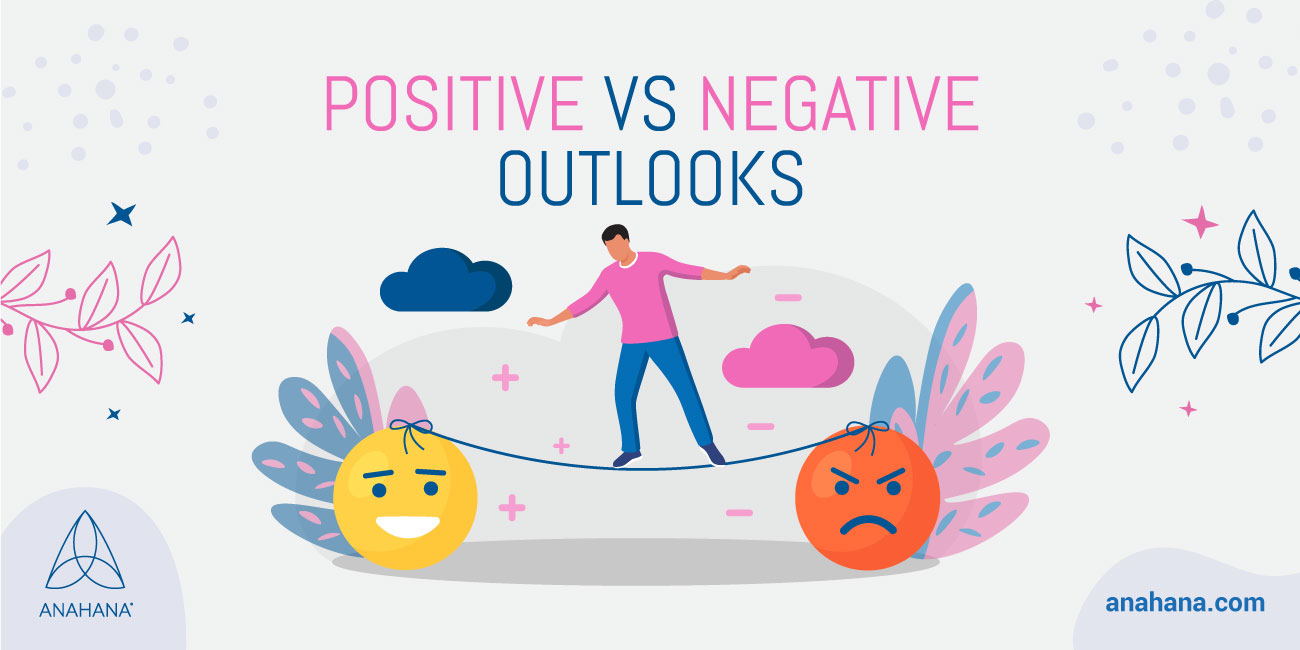
Table of Contents
Discover the transformative power of positivity and learn practical strategies for fostering resilience and well-being. Explore mindset shifts that pave the way for a more fulfilling and joyful life.
What is Positive Psychology?
Positive psychology is a branch of psychology that promotes well-being and a better life. While traditional psychology often focuses on identifying and treating clinical disorders, positive psychology celebrates what is right within us. It focuses on our strengths and celebrates the goodness in life, empowering us to lead lives filled with joy and purpose.
The Power of Positivity on Well-Being
Our well-being is as unique as we are, shaped by our experiences and perspectives. Subjective well-being (SWB), which encompasses feelings of happiness and satisfaction with life, has a significant impact on our lives. A high SWB can lead to plenty of benefits:
-
Better health and longevity
-
Better performance of work
-
More satisfying relationships
-
Reduced burnout and stress
-
Greater self-control
How Positivity Boosts Physical Health
Research from leading health organizations highlight the profound effects of positivity on physical health. Positivity can be linked to:
Lowered Risk of Cardiovascular Disease: Studies show that people with an optimistic outlook can have lower rates of cardiovascular-related issues. This may be because they take proactive steps to manage their health, feeling empowered and in control.
Reduced Stress Levels: Positive thinking can help us better understand and regulate our emotional responses during times of stress. "Positive people" tend to react to stressful situations with resilience and determination rather than a negative outlook.
This means that they are better able to cope with the stressors of daily life, and balance these negative experiences with positive emotions and positive behavior (e.g., engaging in relaxation techniques like deep breathing or meditation, practicing gratitude, taking time for activities and people they love).
Enhanced Physical Health: People who are generally optimistic tend to engage in healthier habits, such as exercising more frequently and eating a balanced diet. This contributes to improved cardiovascular health and overall wellness.
Qualities of a Positive Mindset: 6 Key Attributes
Curious about cultivating a positive outlook? Embracing positivity isn't just about feeling good; it's about nurturing traits that bolster confidence, resilience, and self-esteem.
Gratitude
Embracing gratitude involves acknowledging (and even journalling about) the good things in your life, no matter how small. It's about appreciating the sunrise, a warm cup of tea, or a kind gesture from a friend. By focusing on what you're thankful for, you can shift your perspective and find joy in everyday moments.
Optimism
Optimism isn't about denying reality or ignoring challenges; it's about maintaining hope and confidence in the face of adversity. It's believing that setbacks are temporary and that you have the strength to overcome them. When faced with difficulties, those who embrace optimism see them as opportunities for growth and learning, finding a positive outcome in the hardship.
Resilience
Resilience is the ability to bounce back from setbacks and challenges with grace and determination. It's about facing adversity head-on, knowing that you have the inner strength to persevere. Resilient individuals view failures as learning experiences and setbacks as temporary obstacles on the path to success.
Self-Compassion
Self-compassion involves treating yourself with kindness, understanding, and acceptance, especially during difficult times. It's about recognizing that you're human and that it's okay (and normal) to make mistakes or face challenges. Instead of being self-critical or leaning into negative self-talk, practice self-compassion by offering yourself the same warmth and support you would give to a friend in need. Loving-kindness meditations are a beautiful way to connect with our inner strength and goodness,
Open-Mindedness
Open-mindedness is the willingness to consider new ideas, perspectives, and experiences without judgment or prejudice. It means being curious and receptive to different viewpoints, even if they challenge your own beliefs. By embracing open-mindedness, you can foster personal growth, expand your horizons, and cultivate empathy for others.
Empathy
Empathy is the ability to understand and share the feelings of others, to walk in their shoes and see the world from their perspective. It's about listening with compassion, offering support without judgment, and being present for those in need. By practicing empathy, you can deepen your connections with others, strengthen your relationships, and contribute to a more compassionate world.
Remember, embracing positivity is a journey - a commitment to nurturing these qualities within ourselves each day.
Holding Space for Negative Thinking

Creating space for our negative emotions or negative aspects of our experiences is equally important. When we suppress or dismiss these feelings, they often linger beneath the surface, causing further turmoil within us. Instead, let's gently acknowledge and make room for these difficult emotions, allowing them to exist without judgment.
Holding space for negative thinking involves embracing our emotions fully, even when they're uncomfortable or challenging. It means giving ourselves permission to feel whatever arises within us, without rushing to change or fix it. By honoring our emotions in this way, we create an environment conducive to healing and self-discovery.
However, it's important to strike a balance between acknowledging our negative feelings and nurturing positivity. Toxic positivity, which insists on only focusing on the bright side and ignoring our struggles, can be harmful in the long run. Instead, we aim for a healthy integration of both positive and negative emotions, fostering growth and authenticity.
By holding space for our negative thoughts while also cultivating positivity and resilience, we honor ourselves, and the complexity of being human.
Tips on How to Have & Keep a Positive Mindset
Developing a positive attitude is like planting seeds of joy and resilience within ourselves, nurturing them to grow and flourish, even during difficult times.
Daily Affirmations for Positivity
“Imperfection is not our personal problem - it is a natural part of existing,”― Tara Brach, Radical Acceptance: Embracing Your Life With the Heart of a Buddha.
Embracing positive affirmations is like giving ourselves a daily pep talk rooted in our core values and strengths. By repeating affirmations (a form of positive self-talk) that resonate with who we are, we reinforce our self-identity and cultivate a mindset of self-compassion and confidence. Remember, the key is to choose affirmations that align with our authentic selves and to practice them consistently, whether in writing, in front of a mirror, or as a quiet mantra throughout the day.
Start your day with empowering affirmations that set the tone for positivity and possibility. Here are some examples to kickstart your journey towards a brighter mindset:
-
"I am capable and deserving of love, success, and happiness."
-
"I trust in my journey, knowing that every step forward is a step toward growth."
-
"I am enough, just as I am, and I embrace my uniqueness with love and acceptance."
-
"I radiate positivity and kindness, enriching the lives of those around me."
-
"I am a magnet for abundance, attracting opportunities and blessings into my life."
-
"I am resilient and adaptable, gracefully navigating life's challenges with courage and grace."
Cultivate Gratitude
Cultivate a spirit of gratitude by acknowledging the blessings in your life, big and small. Start each day with a moment of reflection, focusing on the abundance that surrounds you. Whether it's the warmth of the sun on your face, the laughter of loved ones, or the aroma of freshly brewed coffee, cherish these moments of gratitude as reminders of life's beauty and richness.
Surround Yourself with Positivity
Surround yourself with people, environments, and experiences that uplift and inspire you. Cultivate supportive relationships with individuals who celebrate your successes, encourage your growth, and lift you up during challenging times.
Seek out environments that nurture your well-being, whether it's a peaceful nature retreat, a cozy coffee shop, or a vibrant community center. Surrounding yourself with positivity creates an uplifting atmosphere that nourishes your soul and fuels your optimism.
Mindful Self-Care
Prioritize self-care practices that nourish your mind, body, and soul. Make time for activities that bring you joy and replenish your energy reserves. Whether it's indulging in a favorite hobby like painting, gardening, or playing music, or simply spending time in nature, honor your need for self-care with kindness and compassion.
Remember to listen to your body's cues and give yourself permission to rest and recharge when needed. By nurturing yourself with love and care, you'll cultivate a strong foundation of well-being that supports your positive mindset.
Embrace Growth Mindset
Adopt a growth mindset that celebrates learning, resilience, and progress. View challenges as opportunities for growth and discovery, knowing that every setback is a stepping stone toward success. Cultivate a mindset of curiosity and openness, embracing new experiences with courage and enthusiasm.
Seek out opportunities for personal and professional development, whether it's taking a class, learning a new skill, or pursuing a passion project. By embracing a growth mindset, you'll cultivate resilience and adaptability, empowering you to thrive in the face of adversity.
By incorporating these practices into our daily lives, we not only nurture a positive mindset but also lay the foundation for greater resilience, happiness, and fulfillment. Let's continue to water the seeds of positivity within us, allowing them to bloom and radiate light into every aspect of our lives.
Takeaway
Cultivating positivity isn't just about wearing a smile; it is about fostering well-being and fortitude. Surround yourself with love and things that fill your cup—positive associations.
Consciously identify and celebrate the profound impact of positivity on mental and physical health, promoting resilience and life satisfaction. Yet, don't shy away from acknowledging and processing your hard feelings and experiences; holding space for them allows for further growth and emotional balance.
References
Positive thinking: Stop negative self-talk to reduce stress | Mayo Clinic
Positive Mindset: How to Develop a Positive Mental Attitude | PositivePsychology.com
Toxic Positivity—Why It's Harmful and What to Say Instead | Verywell Mind
Prioritizing Positivity: An Effective Approach to Pursuing Happiness?
Disclaimer
The contents of this article are provided for informational purposes only and are not intended to substitute for professional medical advice, diagnosis, or treatment. It is always recommended to consult with a qualified healthcare provider before making any health-related changes or if you have any questions or concerns about your health. Anahana is not liable for any errors, omissions, or consequences that may occur from using the information provided.

By: Anahana
The Anahana team of researchers, writers, topic experts, and computer scientists come together worldwide to create educational and practical wellbeing articles, courses, and technology. Experienced professionals in mental and physical health, meditation, yoga, pilates, and many other fields collaborate to make complex topics easy to understand.
